
Puglia: The Heel of Italy's Boot
Puglia, located in the southeastern region of Italy, is a land of stunning landscapes, historic towns, and crystal-clear seas. This region, often referred to as the 'heel' of Italy's boot, offers a unique blend of cultural richness and natural beauty. From the whitewashed hill towns of the Itria Valley to the dramatic cliffs of the Gargano Peninsula, Puglia is a destination that caters to all kinds of travelers. One of Puglia's most iconic sights is the trulli of Alberobello, traditional stone huts with conical roofs that have been designated a UNESCO World Heritage site. These charming structures are a must-see and offer a glimpse into the region's architectural heritage. Another highlight is the Salento Peninsula, known for its beautiful beaches, turquoise waters, and vibrant nightlife. Towns like Lecce, often called the 'Florence of the South,' are filled with Baroque architecture and lively piazzas. Food lovers will find Puglia a paradise with its rich culinary traditions. The region is famous for its olive oil, fresh seafood, and orecchiette pasta. Local markets and family-run trattorias offer an authentic taste of Puglian cuisine. Whether you're exploring ancient ruins, soaking up the sun on a pristine beach, or indulging in the local food and wine, Puglia promises an unforgettable experience.
Local tips in Puglia
- Visit in spring or early autumn to avoid the summer crowds and enjoy milder weather.
- Rent a car to explore the region's rural areas and hidden gems at your own pace.
- Try the local olive oil and wines; they are some of the best in Italy.
- Wear comfortable shoes for exploring the cobblestone streets of ancient towns.
- Check out local festivals and events for an authentic cultural experience.
Puglia: The Heel of Italy's Boot
Puglia, located in the southeastern region of Italy, is a land of stunning landscapes, historic towns, and crystal-clear seas. This region, often referred to as the 'heel' of Italy's boot, offers a unique blend of cultural richness and natural beauty. From the whitewashed hill towns of the Itria Valley to the dramatic cliffs of the Gargano Peninsula, Puglia is a destination that caters to all kinds of travelers. One of Puglia's most iconic sights is the trulli of Alberobello, traditional stone huts with conical roofs that have been designated a UNESCO World Heritage site. These charming structures are a must-see and offer a glimpse into the region's architectural heritage. Another highlight is the Salento Peninsula, known for its beautiful beaches, turquoise waters, and vibrant nightlife. Towns like Lecce, often called the 'Florence of the South,' are filled with Baroque architecture and lively piazzas. Food lovers will find Puglia a paradise with its rich culinary traditions. The region is famous for its olive oil, fresh seafood, and orecchiette pasta. Local markets and family-run trattorias offer an authentic taste of Puglian cuisine. Whether you're exploring ancient ruins, soaking up the sun on a pristine beach, or indulging in the local food and wine, Puglia promises an unforgettable experience.
When is the best time to go to Puglia?
Iconic landmarks you can’t miss
Parco Nazionale del Gargano
Experience the breathtaking landscapes and rich biodiversity of Parco Nazionale del Gargano, a national park in the heart of Italy's natural beauty.
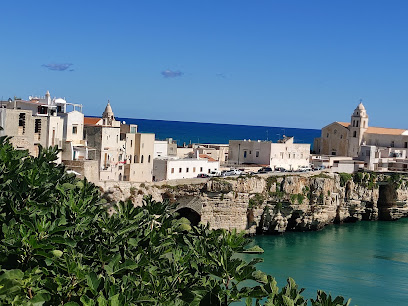
Castel del Monte
Discover the stunning beauty and rich history of Castel del Monte, a UNESCO World Heritage site that showcases medieval architecture in the heart of Puglia.
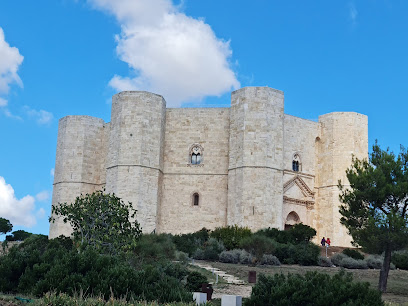
Alta Murgia National Park
Explore the stunning landscapes and rich biodiversity of Alta Murgia National Park, a national treasure in the heart of Puglia, Italy.
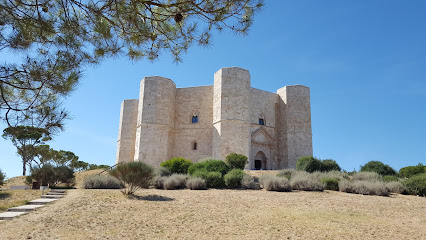
Via Rizzelli
Discover the enchanting Via Rizzelli in Torre Suda, where Italian culture, scenic views, and delightful experiences await every tourist.
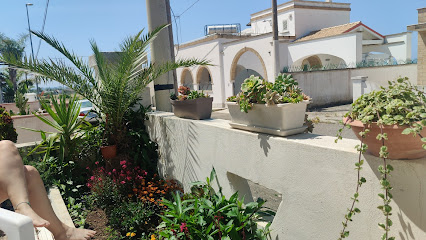
Unmissable attractions to see
Zoosafari Fasanolandia
Experience the thrill of wildlife and amusement rides at Zoosafari Fasanolandia, a top destination for family fun and adventure in Italy.
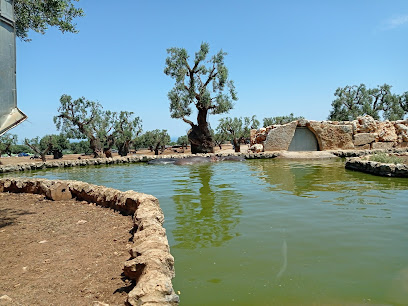
Parco Nazionale del Gargano
Explore the stunning natural beauty and rich biodiversity of Parco Nazionale del Gargano, a top destination in Foggia, Italy.
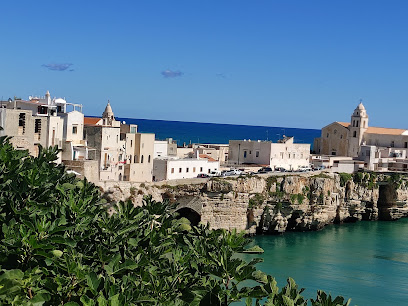
Castel del Monte
Explore the enchanting Castel del Monte, a UNESCO World Heritage site in Andria, renowned for its unique design and stunning landscapes.
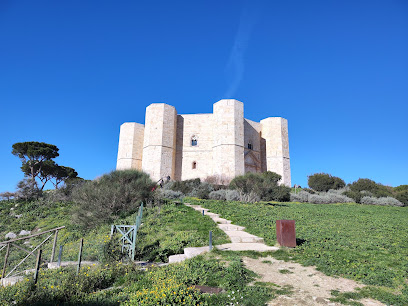
Cave of Poetry
Explore the breathtaking Cave of Poetry in Roca Vecchia, a stunning natural landmark steeped in myth and beauty along the Adriatic coast.
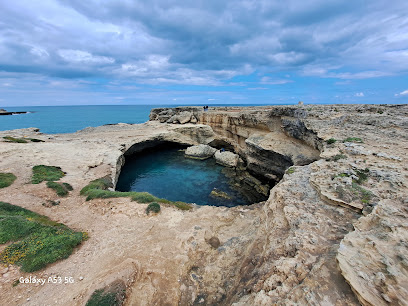
Parco Naturale Regionale Terra delle Gravine
Explore the breathtaking landscapes and rich biodiversity of Parco Naturale Regionale Terra delle Gravine, a must-visit park in Taranto, Italy.
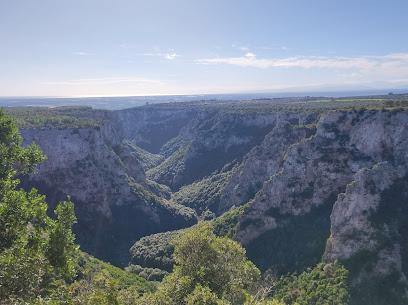
Parco Naturale Regionale Terra delle Gravine
Explore the breathtaking landscapes and rich biodiversity of Parco Naturale Regionale Terra delle Gravine in Taranto, a perfect getaway for nature lovers.
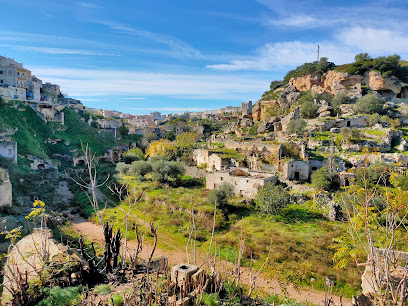
Alta Murgia National Park
Explore the enchanting Alta Murgia National Park, where stunning landscapes and rich biodiversity await every traveler in the heart of Apulia.
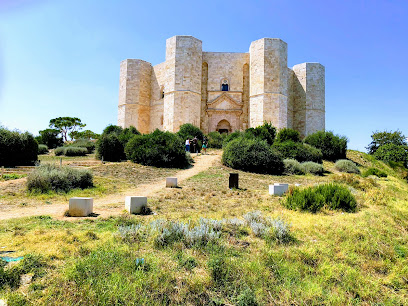
Centro Storico
Explore the historic charm of Centro Storico in Cisternino, where ancient architecture meets stunning landscapes in the heart of Puglia.
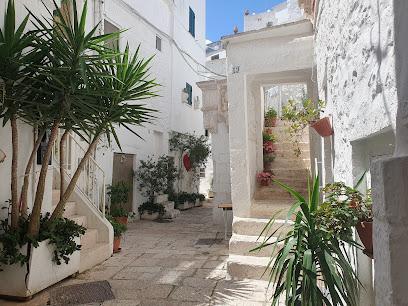
Gravina Sotterranea
Discover the captivating underground world of Gravina Sotterranea, a hidden gem rich in history and stunning geological wonders.
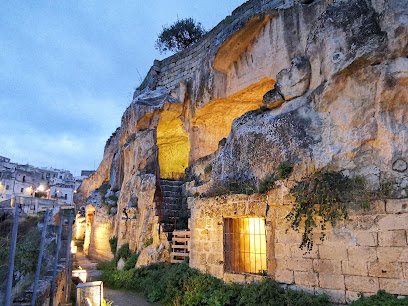
Grotta del Trullo - Putignano
Explore the breathtaking beauty of Grotta del Trullo, a stunning limestone cave in Putignano offering a unique natural experience.
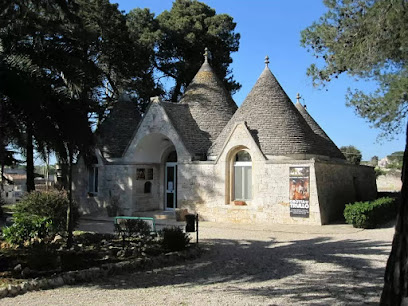
Palazzo Ducale
Discover the enchanting Palazzo Ducale in Martina Franca, a historical landmark showcasing exquisite Baroque architecture and rich cultural heritage.
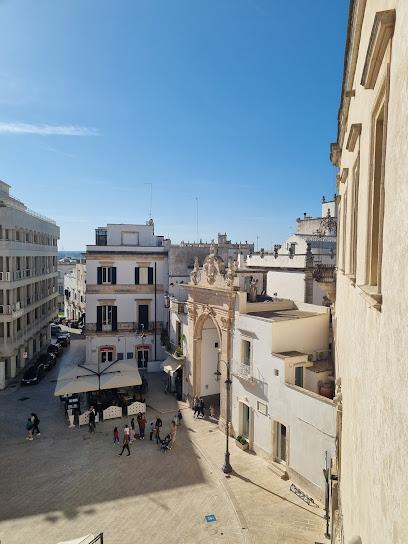
Cala Fetente
Discover the tranquil beauty of Cala Fetente, a stunning public beach in Polignano a Mare, where crystal-clear waters meet dramatic cliffs.
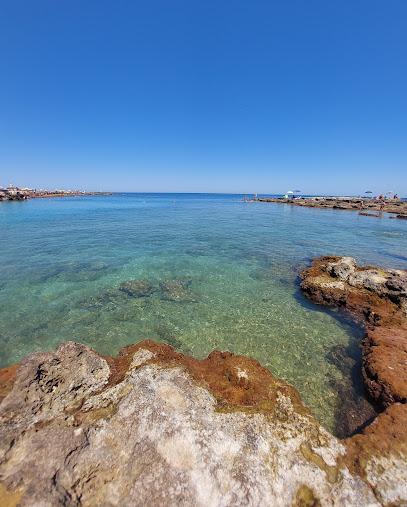
Torre Guaceto Marine Protected Area
Experience the pristine beauty of Torre Guaceto Marine Protected Area, a wildlife haven and a perfect destination for nature lovers and adventure seekers.
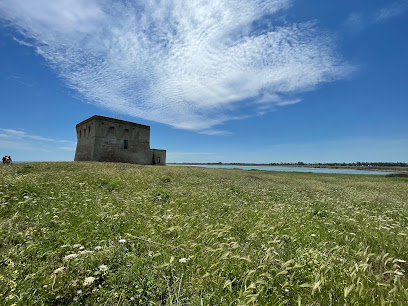
Piazza Plebiscito
Explore the vibrant charm of Piazza Plebiscito in Martina Franca, a stunning square rich in history, culture, and local gastronomy.
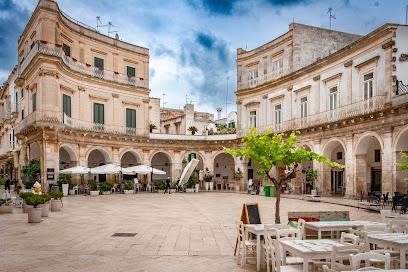
Centro Visite Jazzo Gattini
Experience the breathtaking landscapes and cultural heritage of Matera at Centro Visite Jazzo Gattini, your gateway to exploration and discovery.
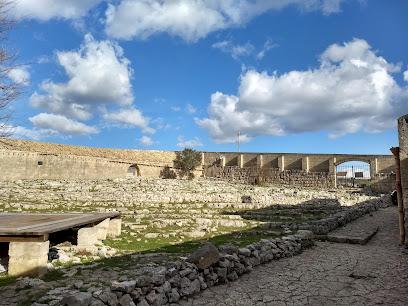
Essential places to dine
Grotta Palazzese
Experience exquisite Italian cuisine in a breathtaking cave setting overlooking the Adriatic Sea at Grotta Palazzese.
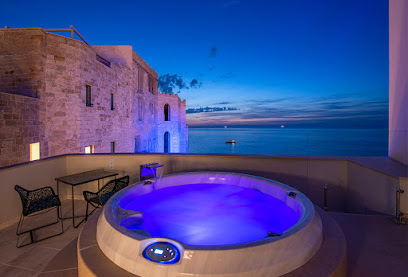
Restaurant Antiche Mura
Experience exquisite Mediterranean and seafood cuisine at Restaurant Antiche Mura in Polignano a Mare – where every dish tells a story.
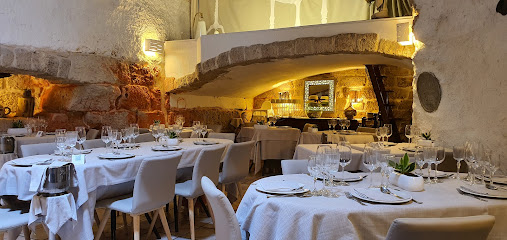
Le Stanzie
Discover authentic Apulian cuisine at Le Stanzie, where organic farming meets traditional Italian flavors in a charming countryside setting.
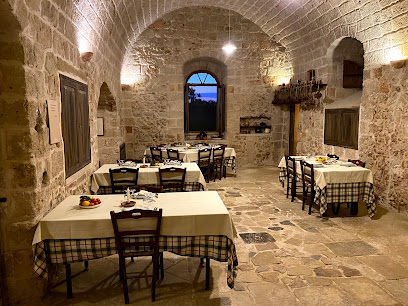
L'Antica Locanda
Experience authentic Italian cuisine at L'Antica Locanda in Noci - where tradition meets taste.
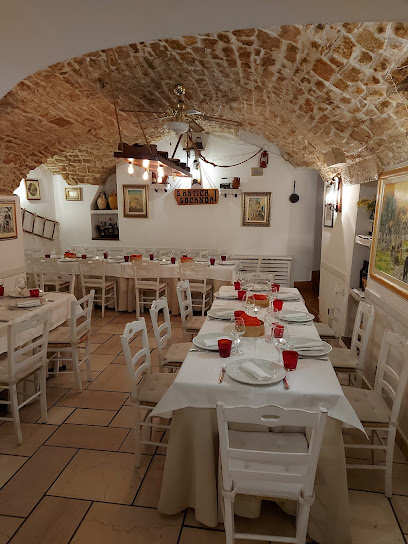
Le Nicchie
Experience the essence of Italy at Le Nicchie - where traditional flavors meet modern elegance in Bari's culinary scene.
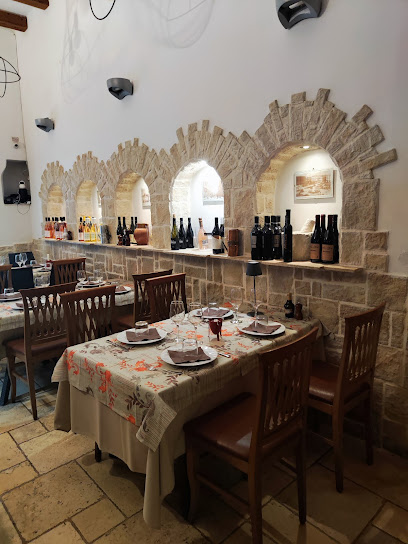
Osteria Del Tempo Perso
Discover Osteria Del Tempo Perso: Where Authentic Italian Cuisine Meets Stunning Views in Ostuni.
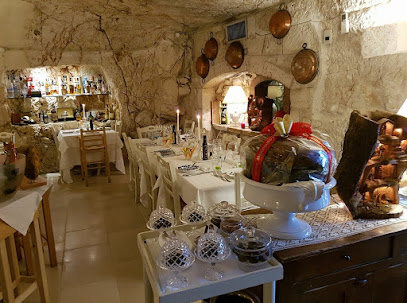
Specchia Sant'Oronzo
Experience authentic Italian flavors at Specchia Sant'Oronzo, where fresh seafood meets Mediterranean culinary traditions in Polignano a Mare.
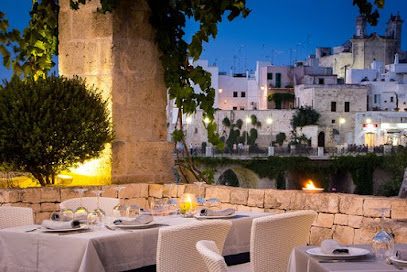
La Murgiana
Discover La Murgiana, where authentic Italian flavors meet warm hospitality in Gravina in Puglia's culinary scene.
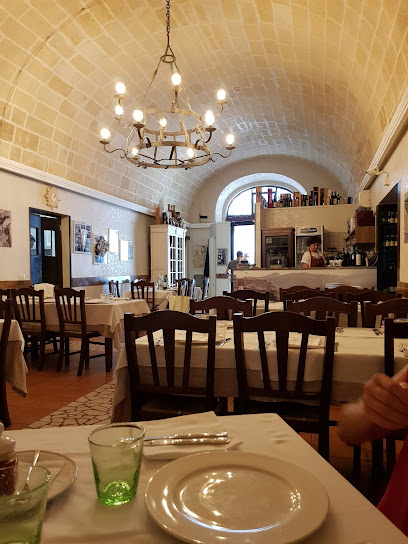
DA LUCIANO - La Puglia dentro
Experience authentic Puglian cuisine at Da Luciano in Polignano a Mare – where every dish tells a story.
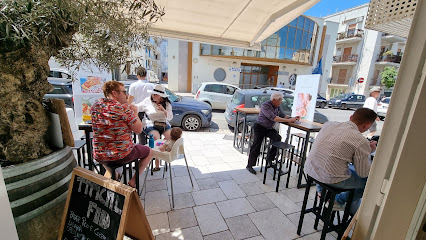
Radici
Discover the authentic flavors of Italy at Radici in Gravina in Puglia – where tradition meets culinary excellence.
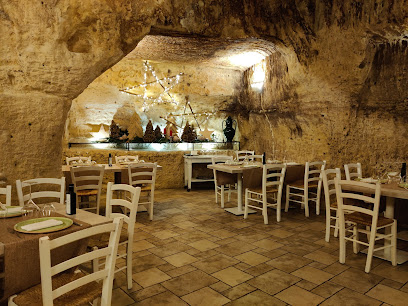
'U Vecchie Furne Restaurant
Experience authentic Italian cuisine at 'U Vecchie Furne Restaurant in Ruvo di Puglia – where tradition meets taste.
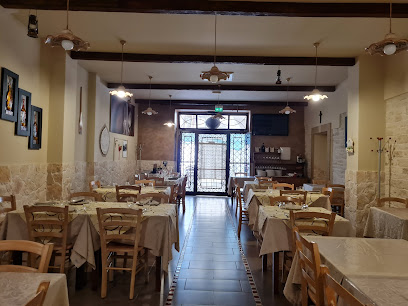
Vinàlia
Discover Vinàlia: A delightful Italian restaurant in Canosa di Puglia serving authentic dishes made from fresh local ingredients.
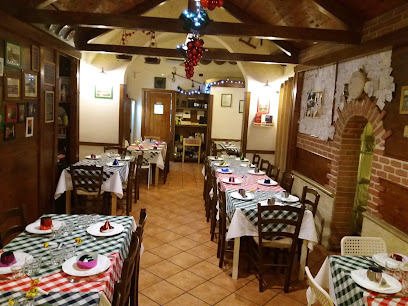
Bina Ristorante di Puglia
Experience authentic Italian flavors at Bina Ristorante di Puglia in Locorotondo - where tradition meets taste.
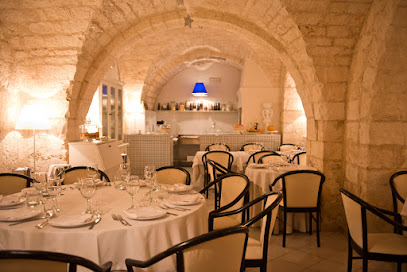
Masseria Il Frantoio
Discover the charm of rural Italy at Masseria Il Frantoio—where rustic elegance meets authentic Mediterranean cuisine.
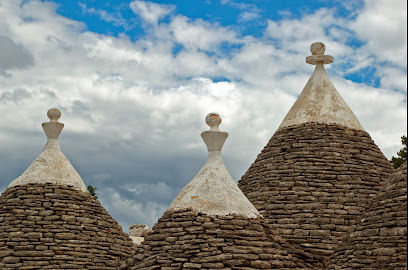
Mezza Pagnotta
Experience authentic Italian vegetarian cuisine at Mezza Pagnotta in Ruvo di Puglia - where fresh ingredients meet culinary creativity.
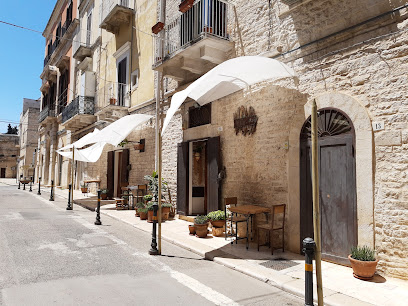
Markets, malls and hidden boutiques
Puglia Village
Experience the ultimate shopping destination at Puglia Village, where fashion meets discounts in the heart of Molfetta, Italy.
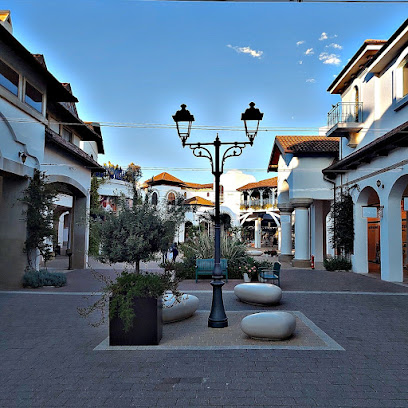
Centro Commerciale GrandApulia
Explore the ultimate shopping experience at Centro Commerciale GrandApulia in Foggia, where shopping, dining, and entertainment come together.
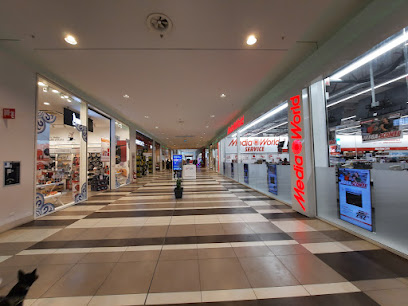
Galleria Graffiti
Discover Galleria Graffiti in Corato, your go-to dress store for stylish selections and chic fashion finds.
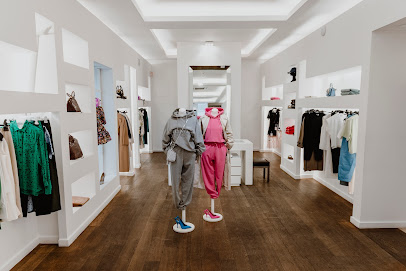
Cupertinoshop
Discover unique fashion at Cupertinoshop in Fasano, where style meets Italian craftsmanship in a charming boutique atmosphere.
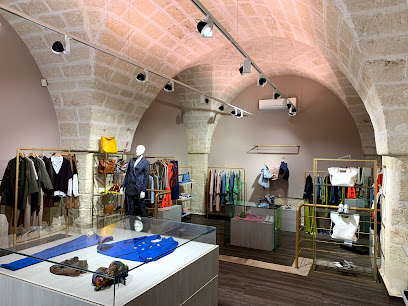
Gucci
Discover the elegance of Gucci in Bari, where luxury clothing and accessories await every discerning shopper.
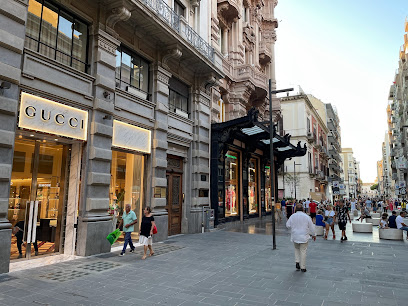
No' Contemporary shop
Discover unique handmade crafts and stylish dresses at No' Contemporary Shop in Polignano a Mare, where local artistry comes to life.
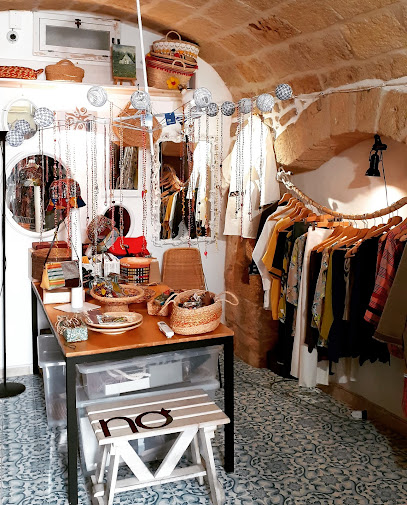
Outlet Sciuku
Explore Outlet Sciuku in Bari for unbeatable deals on fashion and accessories, all in a lively shopping environment.
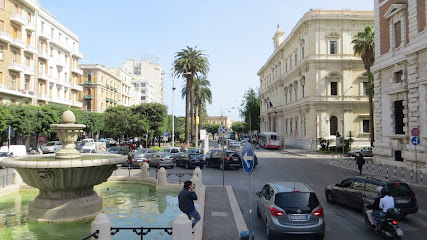
The Smallest Trulli of Alberobello - Artesan Shop
Explore The Smallest Trulli of Alberobello, a quaint artisan shop filled with unique souvenirs and traditional crafts that embody Puglia's rich heritage.
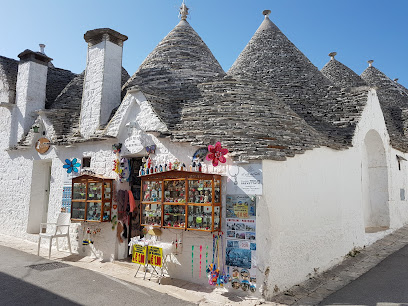
Souvenir shop bari.it
Explore Bari's vibrant souvenir shop for unique artistic handicrafts and stylish fashion accessories that capture the spirit of your travels.
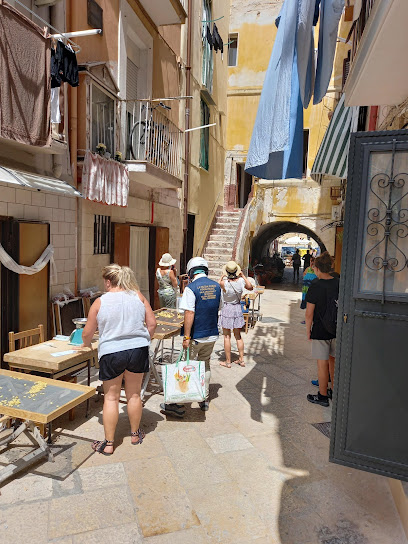
Puglia Ceramiche
Experience the charm of Puglia Ceramiche, where handcrafted ceramics and unique souvenirs await in the heart of Bari.
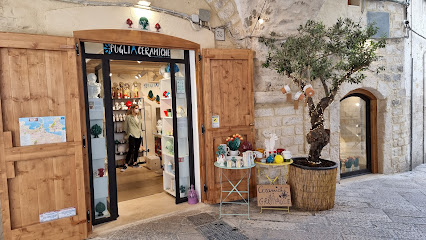
Centocose Clothing Store
Explore Centocose Clothing Store in Ruvo di Puglia for a stunning selection of formal wear, lingerie, and stylish clothing for all ages.
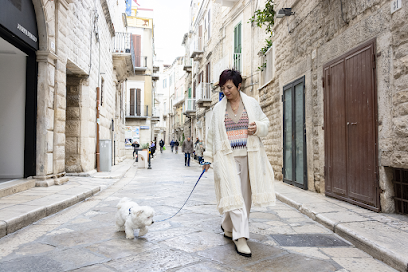
Drestige Boutique
Explore Drestige Boutique in Polignano a Mare for stylish clothing and footwear at unbeatable outlet prices, blending luxury and affordability.
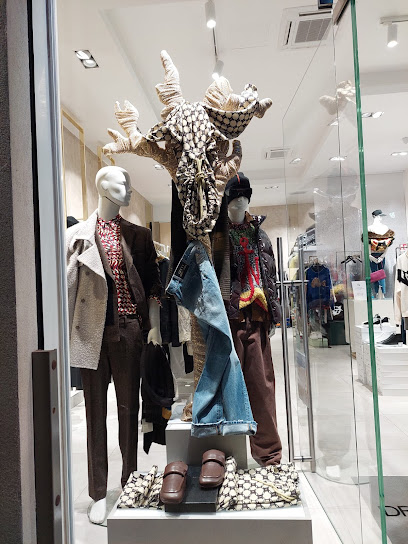
Bless Boutique
Explore Bless Boutique in Gravina in Puglia for an exquisite selection of men's and women's fashion, blending modern style with Italian flair.
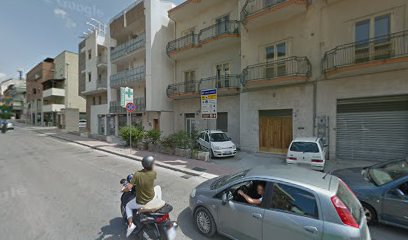
Harmont & Blaine
Discover elegant fashion at Harmont & Blaine in Molfetta, the heartbeat of Italian style and sophistication.
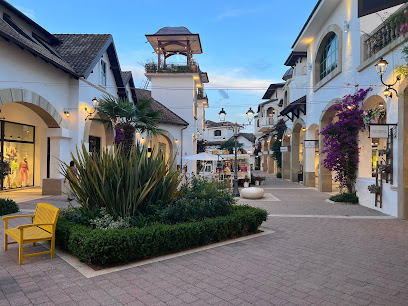
The vice store
Explore The Vice Store in Noci for a unique shopping experience filled with stylish clothing and accessories that capture the essence of contemporary Italian fashion.
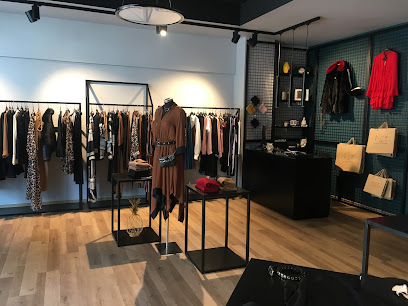
Essential bars & hidden hideouts
The ciclatera under the sea
Experience the magic of The Ciclaterra, Bari’s enchanting underwater-themed bar offering delightful cocktails in a vibrant atmosphere.
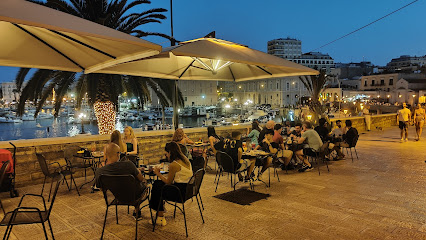
La Casa Del Mojito
Discover the vibrant cocktail culture at La Casa Del Mojito, a must-visit bar in Polignano a Mare, offering refreshing drinks and a lively atmosphere.
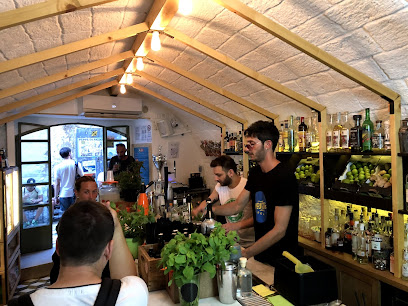
Alchemy Bar and Things
Discover a blend of creativity and charm at Alchemy Bar in Monopoli, where every cocktail tells a story and every evening is a celebration.
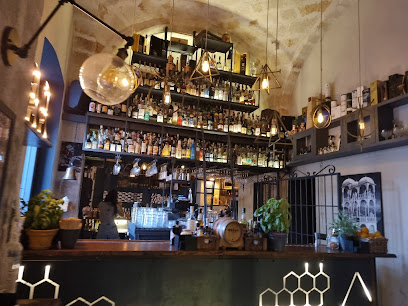
Kambusa Rock Bar
Experience the vibrant nightlife of Monopoli at Kambusa Rock Bar, where live music meets Italian hospitality in a lively setting.
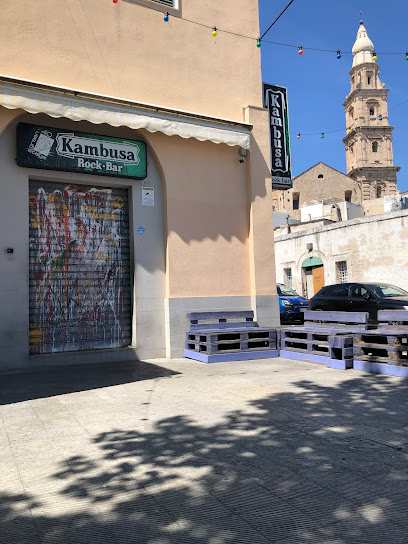
La Ciclatera
Experience the lively nightlife of Bari at La Ciclatera, a pub offering a diverse drink selection and an inviting atmosphere for tourists and locals alike.
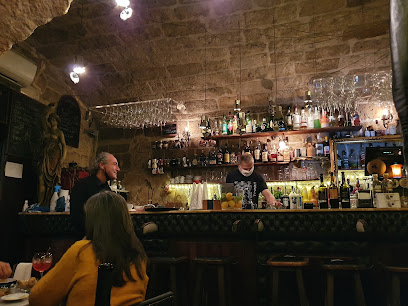
Le Chat Noir
Discover the vibrant nightlife of Bari at Le Chat Noir, a cocktail bar renowned for its exquisite drinks and lively ambiance.
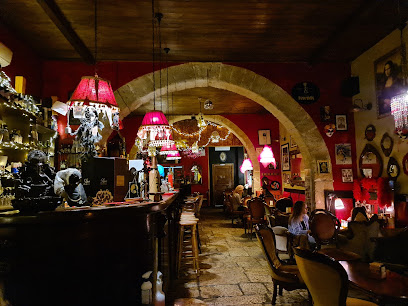
Speakeasy Bari
Discover the vibrant nightlife of Bari at Speakeasy Bari, where innovative cocktails meet delicious tapas in an unforgettable setting.
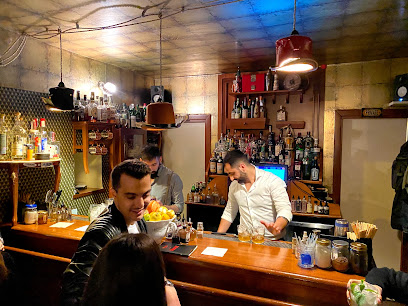
On-Off Stutalacapa
Experience the vibrant nightlife and local culture at On-Off Stutalacapa, a lively pub in the heart of Bari, Italy.
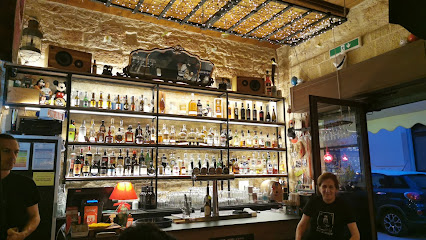
Bobos Wine Bar
Discover the perfect blend of local wines and gourmet sandwiches at Bobos Wine Bar, a must-visit in the heart of Putignano, Italy.
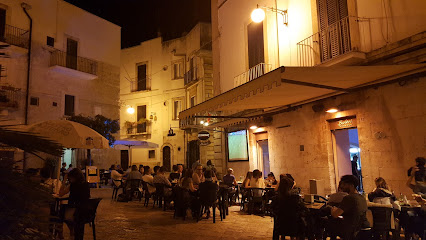
Cocktail'S Bar
Experience the vibrant atmosphere and exquisite cocktails at Cocktail'S Bar, a gem in Noci’s culinary landscape.
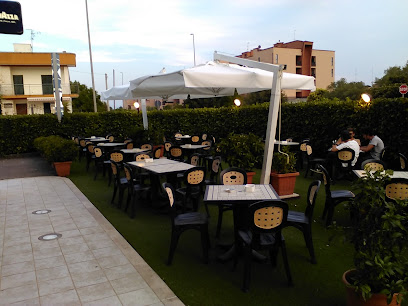
Luau Tiki Bar
Discover the tropical oasis of Luau Tiki Bar in Bari, where vibrant cocktails and a lively atmosphere create the ultimate nightlife experience.
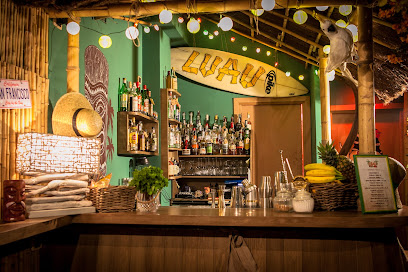
BENNI from GAMBRINUS
Discover the vibrant cocktail culture at Benni from Gambrinus in Gravina in Puglia, where expertly crafted drinks and a lively atmosphere await.
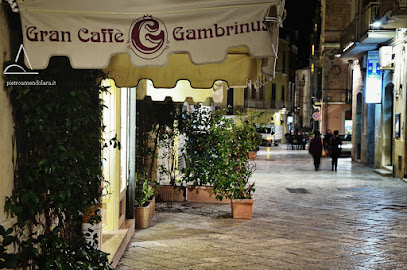
Taboo - Speak Easy
Discover Taboo - Speak Easy, Bari's enchanting cocktail bar blending creativity and classic mixology for an unforgettable nightlife experience.
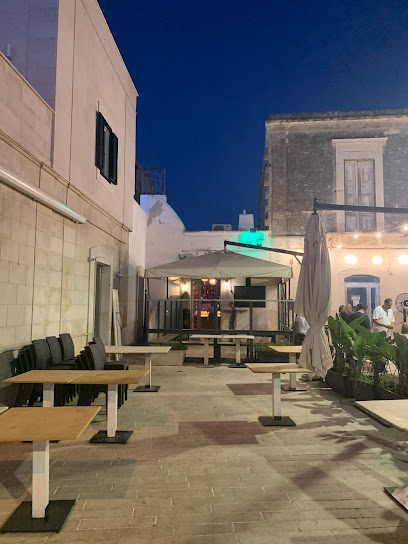
La Mojiteria
Discover the lively atmosphere and expertly crafted cocktails at La Mojiteria, a top cocktail bar in Bari's vibrant nightlife scene.
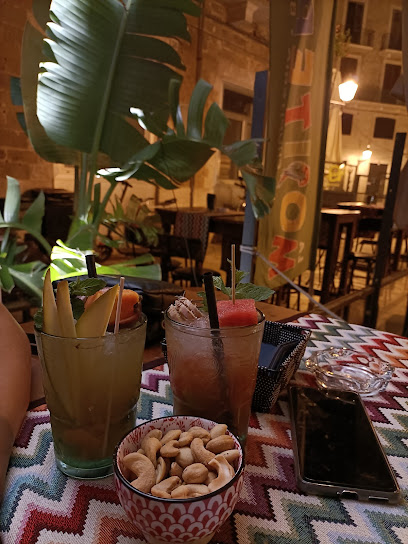
Local Phrases about Puglia
-
- HelloCiao
[chow] - GoodbyeArrivederci
[ah-ree-veh-dehr-chee] - YesSì
[see] - NoNo
[noh] - Please/You're welcomePer favore/Prego
[pehr fah-voh-reh/preh-goh] - Thank youGrazie
[grah-tsyeh] - Excuse me/SorryMi scusi/Scusa
[mee skoo-see/skoo-sah] - How are you?Come stai?
[koh-meh stah-ee] - Fine. And you?Bene. E tu?
[beh-neh. eh too] - Do you speak English?Parli inglese?
[pahr-lee een-gleh-zeh] - I don't understandNon capisco
[nohn kah-pee-skoh]
- HelloCiao
-
- I'd like to see the menu, pleaseVorrei vedere il menu, per favore
[vohr-ray veh-deh-reh eel meh-noo, pehr fah-voh-reh] - I don't eat meatNon mangio carne
[nohn mahn-joh kahr-neh] - Cheers!Salute!
[sah-loo-teh] - I would like to pay, pleaseVorrei pagare, per favore
[vohr-ray pah-gah-reh, pehr fah-voh-reh]
- I'd like to see the menu, pleaseVorrei vedere il menu, per favore
-
- Help!Aiuto!
[ah-yoo-toh] - Go away!Vai via!
[vah-ee vee-ah] - Call the Police!Chiama la polizia!
[kee-ah-mah lah poh-lee-tsya] - Call a doctor!Chiama un dottore!
[kee-ah-mah oon doh-toh-reh] - I'm lostMi sono perso
[mee soh-noh pehr-soh] - I'm illSto male
[stoh mah-leh]
- Help!Aiuto!
-
- I'd like to buy...Vorrei comprare...
[vohr-ray kohm-prah-reh] - I'm just lookingSto solo guardando
[stoh soh-loh gwar-dahn-doh] - How much is it?Quanto costa?
[kwahn-toh koh-stah] - That's too expensiveÈ troppo caro
[eh troh-ppo kah-roh] - Can you lower the price?Puoi abbassare il prezzo?
[pwoy ahb-bahs-sah-reh eel preh-tsoh]
- I'd like to buy...Vorrei comprare...
-
- What time is it?Che ora è?
[keh oh-rah eh] - It's one o'clockÈ l'una
[eh loo-nah] - Half past (10)Sono le dieci e mezza
[soh-noh leh dyeh-chee eh meht-zah] - MorningMattina
[mah-tee-nah] - AfternoonPomeriggio
[poh-meh-ree-joh] - EveningSera
[seh-rah] - YesterdayIeri
[yeh-ree] - TodayOggi
[oh-jee] - TomorrowDomani
[doh-mah-nee] - 1Uno
[oo-noh] - 2Due
[doo-eh] - 3Tre
[treh] - 4Quattro
[kwah-troh] - 5Cinque
[cheen-kweh] - 6Sei
[say] - 7Sette
[seht-teh] - 8Otto
[oh-ttoh] - 9Nove
[noh-veh] - 10Dieci
[dyeh-chee]
- What time is it?Che ora è?
-
- Where's a/the...?Dov'è un/il...?
[doh-veh oon/eel] - What's the address?Qual è l'indirizzo?
[kwahl eh leen-dee-ree-tsoh] - Can you show me (on the map)?Puoi mostrarmi (nella mappa)?
[pwoy mohs-trar-mee (neh-lah mahp-pah)] - When's the next (bus)?Quando passa il prossimo (autobus)?
[kwahn-doh pahs-sah eel prohs-see-moh (ow-toh-boos)] - A ticket (to ....)Un biglietto (per ....)
[oon beel-lyet-toh (pehr)]
- Where's a/the...?Dov'è un/il...?
History of Puglia
-
The Messapians were the ancient inhabitants of Puglia, also known as Apulia in ancient times. They settled in the region around the 6th century BCE and are believed to have been of Illyrian origin. The Messapians established several important cities, including Brindisi and Lecce, which became cultural and economic hubs. Their unique language and artifacts provide a fascinating glimpse into the pre-Roman history of Puglia.
-
During the 8th century BCE, Greek settlers founded colonies along the coast of Puglia, significantly influencing the region's culture and architecture. The city of Taranto, originally named Taras, was among the most prominent Greek colonies. It became a major center of trade and culture, known for its impressive temples and public buildings, many of which still stand today as a testament to its historical significance.
-
Puglia became part of the Roman Empire in the 3rd century BCE after the Roman Republic's conquest of the region. The Romans recognized Puglia's strategic importance and developed extensive road networks, including the famous Via Appia and Via Traiana, which facilitated trade and military movement. The region flourished under Roman rule, with the construction of amphitheaters, aqueducts, and villas that can still be explored today.
-
Following the fall of the Western Roman Empire, Puglia came under Byzantine control in the 6th century CE. This period saw the rise of important religious and cultural centers, including the city of Otranto. The Byzantine influence is still evident in Puglia's art and architecture, particularly in the region's churches and mosaics, which reflect the blend of Eastern and Western traditions.
-
In the 11th century, Puglia was conquered by the Normans, who established the County of Apulia. Under Norman rule, the region saw the construction of numerous castles and cathedrals, such as the impressive Castello Svevo in Bari and the Cathedral of Trani. The Normans also played a crucial role in the Crusades, using Puglia as a launching point for expeditions to the Holy Land.
-
Puglia experienced significant development under the rule of the Hohenstaufen (Swabian) dynasty in the 12th and 13th centuries. Frederick II, Holy Roman Emperor, built several castles in the region, including the iconic Castel del Monte, renowned for its unique octagonal design. Following the Swabians, the Angevins took control in the late 13th century, further enriching Puglia's architectural heritage with Gothic influences.
-
From the late 15th century to the early 18th century, Puglia was under Aragonese and later Spanish rule. During this period, the region faced frequent Ottoman raids, leading to the construction of defensive towers and fortifications along the coastline. The Spanish influence is evident in Puglia's baroque architecture, particularly in cities like Lecce, which is often referred to as the 'Florence of the South' due to its stunning baroque buildings.
-
In the 18th and 19th centuries, Puglia was part of the Kingdom of Naples under Bourbon rule. This period saw economic and social reforms, although the region remained largely agricultural and underdeveloped. Puglia played a role in the Italian unification movement (Risorgimento), with local uprisings contributing to the eventual unification of Italy in 1861. The region's history during this time is marked by a struggle for modernization and integration into the new Italian state.
-
In the 20th century, Puglia experienced significant changes, including industrialization, urbanization, and the development of its tourism industry. The region is now known for its rich cultural heritage, stunning landscapes, and delicious cuisine. Modern Puglia continues to celebrate its historical roots through festivals, preservation of historical sites, and promotion of traditional crafts and food, making it a vibrant and dynamic destination for travelers.
Puglia Essentials
-
Puglia is well-connected by air, rail, and road. The main airports are Bari Karol Wojtyla Airport (BRI) and Brindisi Salento Airport (BDS), which offer both domestic and international flights. From the airport, you can take a taxi, shuttle bus, or rent a car to reach your destination. Puglia is also accessible by train, with major cities like Bari, Lecce, and Brindisi connected to other parts of Italy via Trenitalia. If you're driving, the A14 and A16 motorways provide convenient routes to Puglia.
-
Public transportation in Puglia includes buses and trains, which are efficient and cover most major towns and cities. The Ferrovie del Sud Est operates regional trains and buses that connect smaller towns. Renting a car is highly recommended for exploring the countryside and coastal areas at your own pace. Taxis are available but can be expensive, so it's advisable to agree on the fare before starting your journey. Biking is another great option, especially for short distances.
-
The official currency in Puglia is the Euro (€). Credit cards are widely accepted in hotels, restaurants, and shops, but it's wise to carry some cash, especially in smaller towns and rural areas. ATMs are readily available in cities and towns. Tipping is not obligatory but is appreciated; rounding up the bill or leaving a small tip for good service is customary.
-
Puglia is generally a safe region for tourists. However, as with any destination, it's important to stay vigilant. Avoid poorly lit areas at night and be cautious in crowded places to prevent pickpocketing. Some areas in larger cities like Bari and Brindisi can have higher crime rates, so it's best to stick to well-populated areas, especially after dark.
-
In case of an emergency, dial 112 for police, fire, or medical assistance. Hospitals and clinics are available in major cities and towns. It's advisable to have travel insurance that covers medical emergencies. Pharmacies (Farmacia) are widespread and can provide over-the-counter medications and advice for minor health issues.
-
Fashion: Do dress smartly and modestly, especially when visiting religious sites. Avoid overly casual attire like flip-flops and swimwear outside the beach. Religion: Do respect religious customs; cover your shoulders and knees when entering churches. Public Transport: Do validate your ticket before boarding trains and buses. Don't eat or drink on public transport. Greetings: Do greet people with a polite 'Buongiorno' (Good morning) or 'Buonasera' (Good evening). A handshake is common. Eating & Drinking: Do try local specialties and wines. Don't rush meals; dining is a leisurely experience in Puglia.
-
To experience Puglia like a local, visit the weekly markets where you can buy fresh produce, cheese, and handicrafts. Engage with locals, who are often friendly and willing to share insights about their culture. Don't miss the opportunity to explore the Trulli houses in Alberobello, the Sassi caves in Matera, and the stunning coastline. For an authentic experience, participate in local festivals and try traditional dishes like orecchiette pasta and burrata cheese.
Nearby Cities to Puglia
-
Things To Do in Matera
-
Things To Do in Vlorë
-
Things To Do in Durres
-
Things To Do in Ravello
-
Things To Do in Kavajë
-
Things To Do in Amalfi
-
Things To Do in Patos
-
Things To Do in Ulcinj
-
Things To Do in Pompeii
-
Things To Do in Bar
-
Things To Do in Herceg Novi
-
Things To Do in Budva
-
Things To Do in Positano
-
Things To Do in Dubrovnik
-
Things To Do in Tivat













